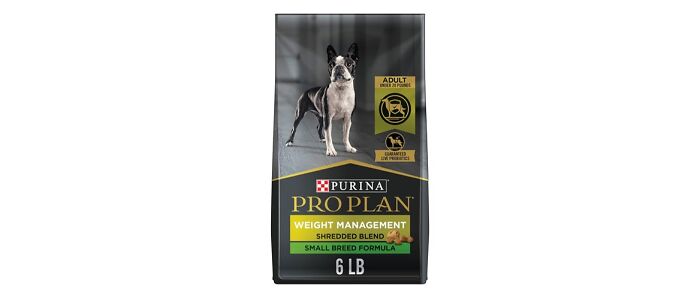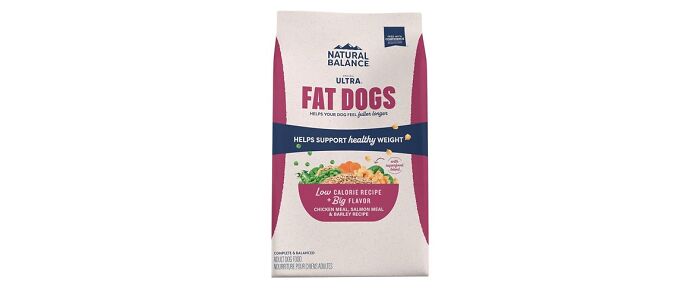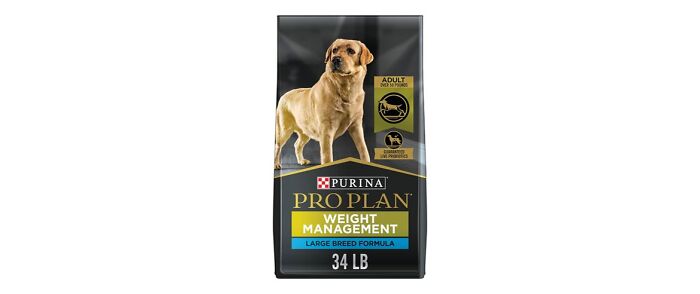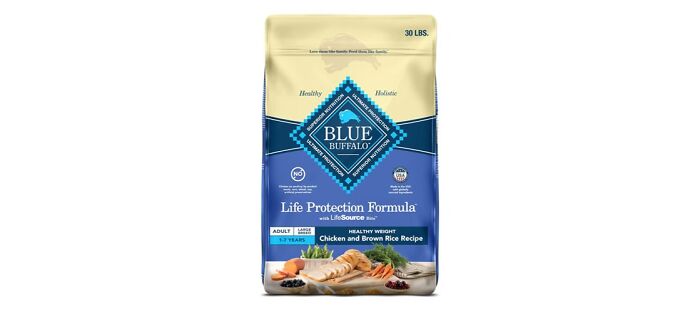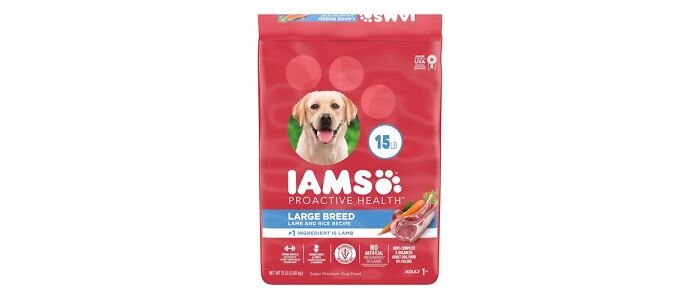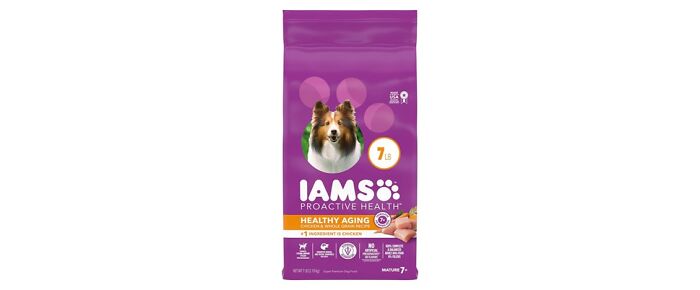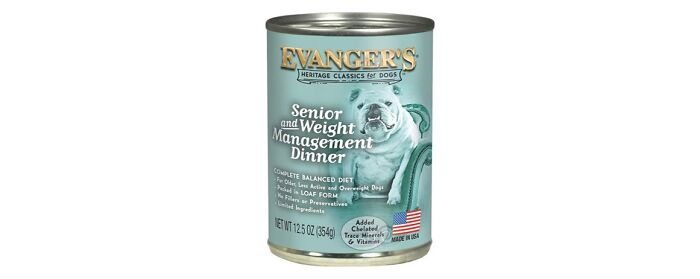Image credits: mr_munch_theboss Bored Panda enlisted one of our brightest minds on dog nutrition, a vet student, Soneye Toluwalase, to bring you a comprehensive, well-researched list of the ultimate dog foods for weight loss. Whether your pup needs to slim down for health reasons or just to look its best, we’ve selected the formulas with the most convincing results — breaking down the best of the best, from recipes supporting healthy weight management to prescription weight loss options. The information provided herein is for informational purposes only. Please refer to our disclaimer for more details. Our Community Picks Best Overall: Blue Buffalo Homestyle Healthy Weight $33.49 Runner-Up: Natural Balance Fat Dogs $19.93 Also Great: Hill’s Science Diet Perfect Weight Adult $45.49 Note: All prices and deals listed are accurate as of the time of publishing. Please check the provided links for the most current pricing.
Best Wet Food for Weight Loss
Wet food formulas are an excellent option if your dog has gained extra weight. They are made using lean protein sources and natural ingredients, perfect for husky canines who have difficulty chewing or simply prefer wet food.
AAFCO Nutritional Standard
The Association of American Feed Control Officials (AAFCO) is responsible for setting safety standards and recommending nutrient profiles for pet foods in the United States. If a dog food is labeled as “complete and balanced,” it has adhered to nutritional standards outlined by AAFCO. In other words, the dog food has either met AAFCO’s minimum requirements or has undergone animal feed tests using AAFCO protocols. Although AAFCO doesn’t have an official standard for weight loss food for dogs, it has established criteria for labels indicating that a food is “light,” “low calorie,” or “low fat.” Look for the AAFCO nutritional adequacy statement on the dog food packaging to ensure your dog gets essential nutrients while on a weight-loss diet.
Caloric Density
Calorie control is the basis of any ideal weight loss regimen. When choosing foods, look for those with controlled caloric content. This allows your pet to drop its extra weight gradually while still providing essential nutrients. Consult your veterinarian to determine the proper caloric intake for your dog’s weight loss goals.
Ingredient Quality
The quality of ingredients in your dog’s food plays a significant role in their overall health. Choose dog foods made with natural ingredients and avoid those containing artificial preservatives, colors, or flavors. Also, look for whole food ingredients, such as lean proteins, fruits, and vegetables, to help support your dog’s immune system. Any weight management food should contain high-fiber ingredients like vegetables, fruits, and grains. Opt for foods with fiber to help your dog with stress-free digestion.
Protein-to-Fat Ratio
Protein helps maintain muscle mass during weight loss, while moderate fat levels provide energy. The ideal protein-to-fat ratio in dog food for weight loss depends on your dog’s age, breed, size, activity level, and overall health. Adult dogs generally need a minimum of 18% protein in their diet. However, if your dog needs to lose weight, it’s best to aim for a higher % protein content of about 20%. Fat levels of 12% or lower are necessary for food to help shed weight. Experts recommend a protein-to-fat ratio of 20% protein to 12% fat in adult dog food for effective weight loss.
Balanced Diet
When helping your dog lose weight, provide necessary nutrients. Never starve your dog. Choose dog food with balanced nutrition, vitamins, minerals, antioxidants, and essential nutrients. Opt for whole food ingredients and weight management formulas.
Life Stage
As dogs age, their nutritional needs change. For example, senior dogs require ingredients to support joint health, cognitive function, and overall health. Look for dog foods and treats that suit your dog’s life stage, and when in doubt, consult a veterinarian.
Breed and Size of Your Dog
Choose weight-loss dog food based on your dog’s breed and size. Look for breed-specific formulas with tailored calorie and nutrient levels.
Vet Recommendations
Consult with your vet for personalized weight loss recommendations based on your dog’s health condition, breed, size, and the amount of weight to be lost. They may recommend a prescription food formulated for weight management and advise on the proper amount of food to feed your dog, monitoring progress closely.
Tips for Optimal Weight Management in Dogs
Here are some practical tips you can apply to improve your approach. Tip 1. Be sure to measure your dog’s food portions accurately and avoid overfeeding. Follow your dog food brand’s feeding instructions and adjust portions based on your dog’s needs. Tip 2. Help your dog maintain a healthy weight by incorporating daily exercise into its routine. Take it for walks, play interactive games, or engage in activities like swimming or hiking to keep it active. Tip 3. Stick to a regular feeding schedule. Resist the urge to feed your dog table scraps or excessive treats, as these can contribute to weight gain. Tip 4. Regularly monitor your dog’s body condition and weight. Consult your vet to determine the appropriate diet and exercise routine using a body condition scoring system. Tip 5. Opt for low-calorie treats or use small portions of their regular food as rewards during training. Tip 6. Invest in slow-feed bowls or puzzle feeders. These encourage slower eating and help your dog feel full.
What can I feed my overweight dog to lose weight?
To help your overweight dog lose weight, feed them high-quality weight management dog food with controlled caloric content. Look for foods with lean protein sources and a balanced protein-to-fat ratio—around 20% protein to 12% fat for adult dogs. This will support weight loss while providing essential nutrients.
What is the fastest way for a dog to lose weight?
Quick weight loss isn’t safe for dogs because it can cause health complications and disrupt muscle mass. Instead, focus on gradual changes through controlled portions, regular exercise, and a balanced diet.
Is dry or fresh food better for weight loss in dogs?
Both can work, depending on your dog’s preferences and needs. Consult with your veterinarian to determine the best option for your dog.
What dog food will help my dog gain weight?
Choose a high-quality dog food formulated for weight gain and muscle development. Also, look for foods with higher protein and fat content to support healthy weight gain. Follow Bored Panda on Google News! Follow us on Flipboard.com/@boredpanda! Please use high-res photos without watermarks Ooops! Your image is too large, maximum file size is 8 MB.





